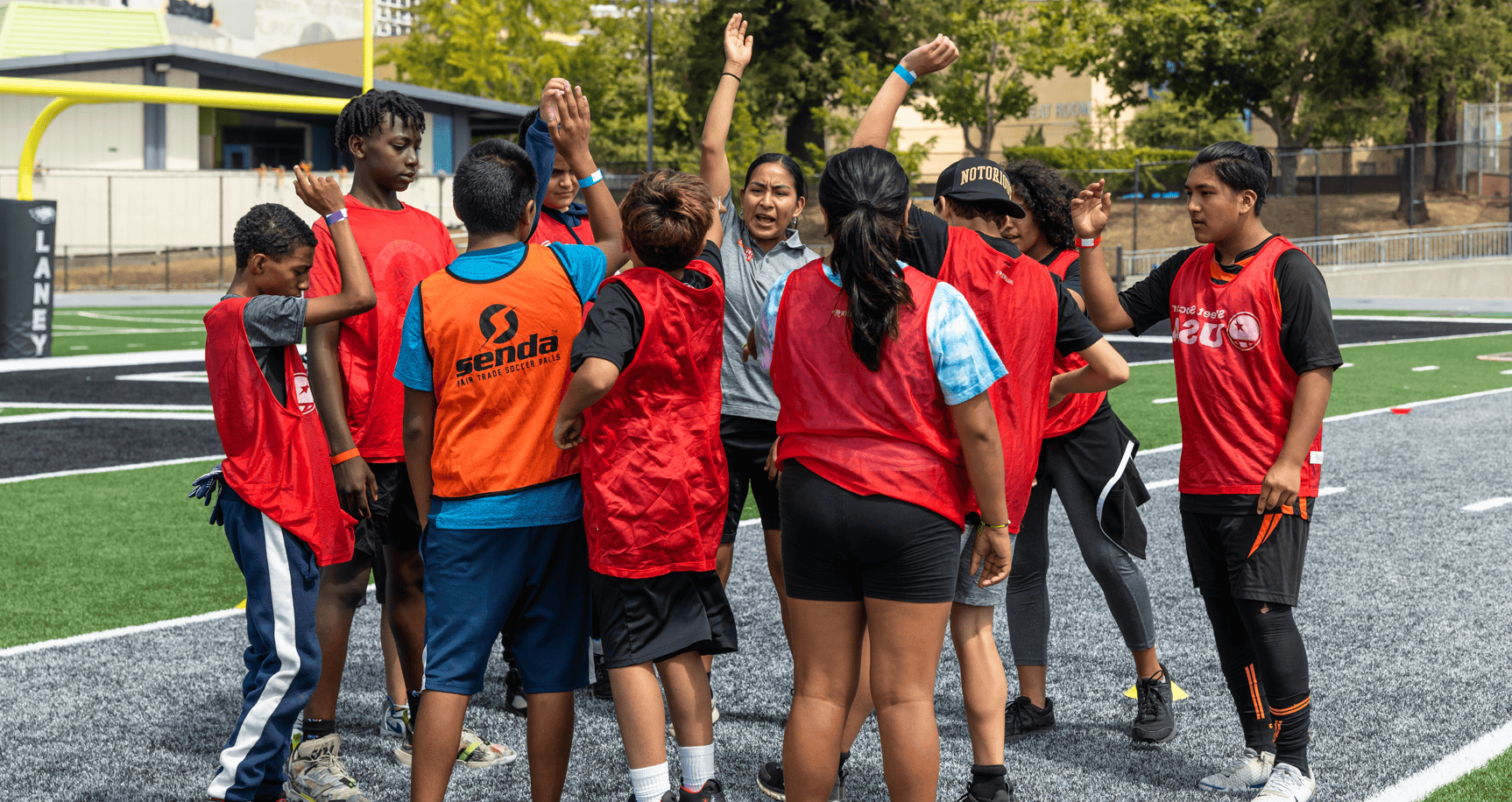Recent data from the National Survey of Children’s Health (NSCH) shows a concerning trend: the percentage of children engaging in sports has declined by nearly five percentage points in just five years, from 58.4% in 2017 to 53.8% in 2022. This decline represents not only a reduction in physical activity but also a missed opportunity for holistic development in our youth. With sports recognized by the Department of Health and Human Services (HHS) as vital for physical, mental, and social well-being, the need to address this decline is more urgent than ever.
The Role of Positive Coaching Alliance (PCA)
As the only national organization committed exclusively to ensuring that youth sports are positive, equitable, and accessible, we recognize the urgent need to tackle this challenge head-on. Our mission goes beyond mere participation; we aim to transform the culture of youth sports so that every child can enjoy the positive benefits that come with engagement in youth sports done right.
Why Positive, Equitable, and Accessible Sports?
The benefits of sports are well-documented, ranging from improved physical health to better mental health outcomes like reduced depression risk. Sports also play a crucial role in developing essential life skills, such as confidence, teamwork, and leadership. However, these benefits are only achievable if sports environments are:
POSITIVE
Sports should foster joy and personal growth rather than a singular focus on competition. PCA trains coaches to prioritize youth development, ensuring that sports are a source of positive experiences.
EQUITABLE
It is essential that all children have the opportunity to participate and thrive in sports, regardless of their economic or social status. PCA works to dismantle the barriers that disproportionately affect marginalized and under-resourced communities.
ACCESSIBLE
Accessibility means that sports programs must be reachable for all children, meeting their diverse needs and backgrounds. PCA strives to ensure no child is left out due to logistical challenges.
Addressing the Decline with Targeted Interventions
The NSCH report highlights significant declines in participation among specific groups, notably among high school-aged children, girls, and children from communities of color. This trend must be reversed. PCA’s initiatives directly address these disparities through comprehensive strategies that remove both experiential and access barriers, creating an inclusive environment where every child can thrive.
For instance, PCA’s partnership with the Oakland Unified School District’s Elementary School Youth Sports Program has created over 4,000 new sports opportunities, primarily for low-income youth of color. This program not only increased participation, but also improved connections to the school and community, showcasing the power of positive and equitable sports programs.

Conclusion: A Collective Call to Action
The declining trend in youth sports participation is a wake-up call for all stakeholders involved in youth development. As coaches, educators, community leaders, policymakers, and organizations, we have a collective responsibility to advocate for and implement programs that make sports a positive, equitable, and accessible experience for all children.
PCA leads this change by setting new standards for youth sports across the nation and fostering inclusive communities that reach young people everywhere. Join us in this crucial mission to ensure that sports serve as a foundation for positive and holistic development in youth.